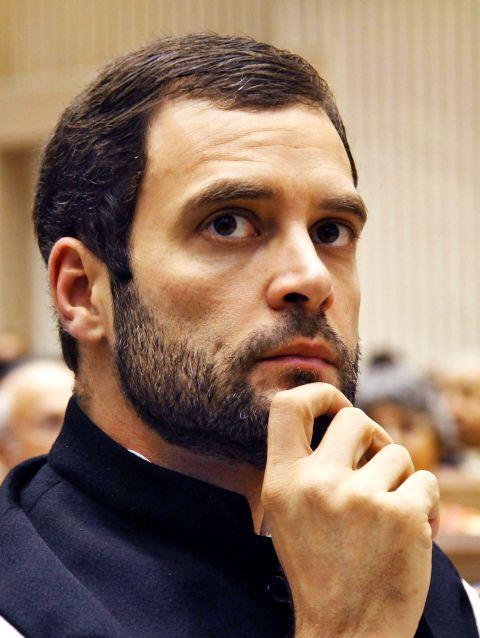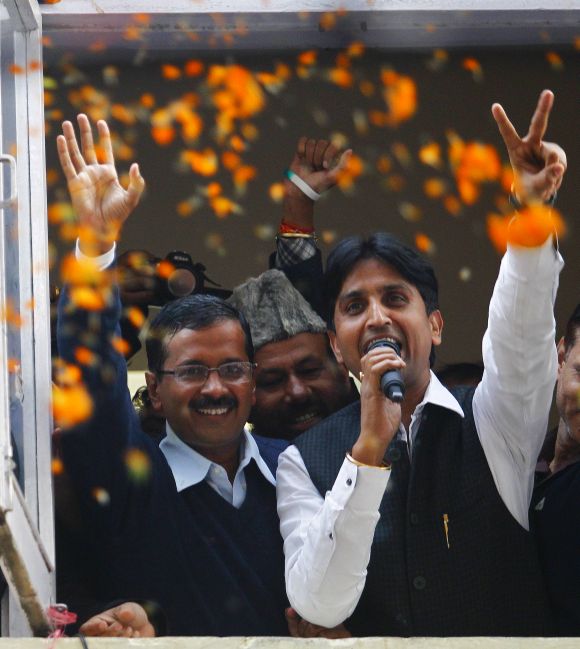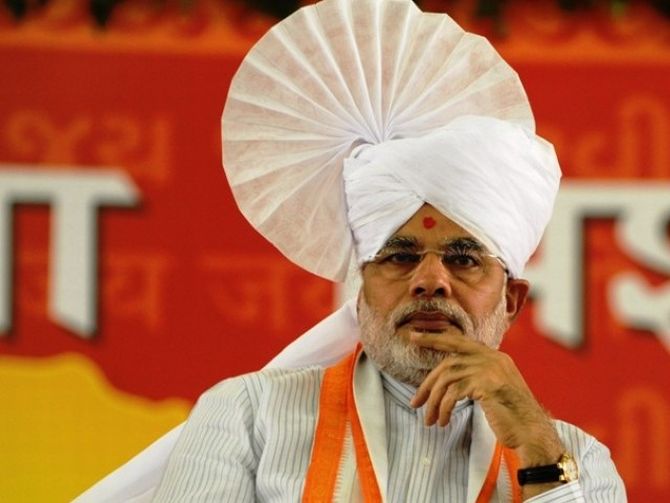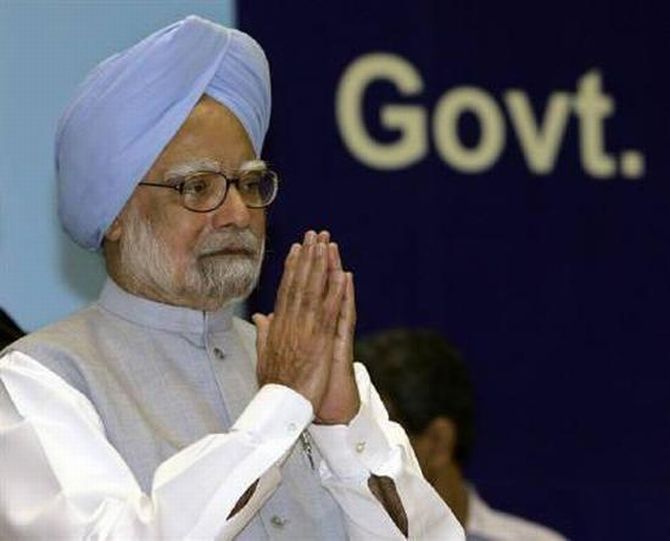Photographs: B Mathur/Reuters Bharat Bhushan
Sudden shifts in electoral loyalties could make the timing of Rahul Gandhi's assertion of leadership somewhat inopportune, notes Bharat Bhushan.
Irrespective of how Rahul Gandhi restructures the Congress, he is unlikely to improve his party's chances dramatically in the run-up to the 2014 general election. It will be difficult to overcome 10 years of anti-incumbency directed against the two successive governments led by Prime Minister Manmohan Singh.
"Anti-incumbency" is a phrase that encapsulates not just anger against a government but also the accumulation of weariness with it. In our democracy, where politics is defined by competitive grabbing of advantages that flow from or are facilitated by the State, 10 years is long enough for a government to earn the ire of those left out of its patronage networks, and for others to get bored with it.
But there are other reasons that make the timing of Rahul Gandhi's assertion of leadership in the Congress Party somewhat inopportune. A new player, the Aam Aadmi Party, has unexpectedly emerged to offer an alternative both to the Congress and to the proto-fascism of Narendra Modi of the Bharatiya Janata Party.
Please …
AAP's victory may lead to a secular realignment of politics
Image: Delhi CM Arvind Kejriwal and AAP leader Kumar VishwasPhotographs: Anindito Mukherjee/Reuters
The stellar victory of the AAP in Delhi and the nationwide response it has generated against corruption in public life may lead to what American political scientists call the secular realignment of politics. The phrase describes sudden shifts in electoral loyalties in critical elections.
Such political realignments reflect profound shocks to society. For example, in 1967, weariness with two decades of Congress rule led to such a realignment. In 1977, the shock of the Emergency and the authoritarian tendencies of Indira Gandhi resulted in a similar shift.
In 1989, the allegations of massive corruption in defence deals encouraged voters to shift their traditional political loyalties to a motley group of parties led by V P Singh. The 2014 election could possibly see a similar realignment of politics, and AAP might not be the only beneficiary of such a shift.
The AAP victory could lead to a readjustment of the traditional ideological space within Indian politics. A description of this space as a Third Front or a third option is, however, misleading.
If one takes into account the wide social spectrum represented by the surging membership of AAP one could argue that it is beginning to occupy the traditional space of the Congress itself. It appears as though AAP could have the potential of replacing the Congress as a conglomeration of ideologies and interests, some even contradictory. The results of the Delhi election suggest that such a reconfiguration is possible because while the BJP retained much of its influence, the Congress was swept away by the AAP wave.
Please …
Modi's ascendency could irreparably damage the Congress
Image: BJP's PM candidate Narendra ModiPhotographs: Amit Dave/Reuters
The AAP might then be moving towards reconstituting a Centre-Left secular alternative to the grand old party. One can visualise a time -- not necessarily in 2014 -- when AAP becomes a national party and the Congress is reduced to pockets of regional presence. So why, then, does the Congress support the AAP government in Delhi?
Because without AAP, a man with a congenitally anti-Nehruvian and anti-Congress vision might well become prime minister. Modi's ascendency could irreparably damage the Congress and its ideological legacy. Yet if Modi is kept out now, the Congress can hope to fight another day. It is a difficult trade-off but the Congress has no other options.
Other proximate reasons also make the coming election a difficult one for the Congress party.
The party lacks effective campaigners. In the 2009 election, Sonia Gandhi had addressed 111 rallies across the country. She may not have the physical endurance to match that feat. Five years ago, Manmohan Singh was believed to be effective in 20 to 25 urban seats. Today he is a liability.
There are some moves to drag the natural charmer the party has in reserve, Priyanka Gandhi, as a campaigner. However, as of now it seems unlikely that she would campaign anywhere outside her family's home constituencies in Uttar Pradesh.
Please …
The other dilemma
Image: Prime Minister Manmohan SinghPhotographs: B Mathur/Reuters
The other dilemma the Congress Party faces is how to present Manmohan Singh's economic legacy at a time of an economic downturn and high inflation. If they dump his ideas, what would differentiate it from AAP's populism? As it is, some Congress members claim that Arvind Kejriwal and AAP are only implementing some of its own ideas.
There is also a major leadership crisis in the Congress. In the last one and a half decades, the party has seen massive attrition in leadership with the passing away of stalwarts like Arjun Singh, Devendra Dwivedi, Madhavrao Scindia, Rajesh Pilot, and Y S Rajasekhar Reddy, to name a few.
Although a number of youngsters from illustrious political dynasties were inducted into the party in 2004, they haven't significantly helped the party's fortunes. For example, the assembly election results from Rajasthan and Madhya Pradesh show that the party has done badly in what were thought to be the pocket boroughs of Sachin Pilot and Jyotiraditya Scindia.
While it will take another decade to build a new phalanx of leaders, the process has not been helped by the policy of backing political dynasties. That has tended to nip in the bud the political ambitions of ordinary Congress activists in these designated fiefdoms.
Some Congressmen rationalise the situation by arguing that sitting in the Opposition will help the party. However, it will still have to win a substantial number of seats to even be an effective Opposition. The party, having virtually given up on urban seats, is planning to concentrate on rural constituencies where AAP does not have much influence.
However, it is doubtful whether in this age of cable and DTH television, political expectations are all that different between rural and urban constituencies. Disenchantment with established political parties probably exists in the villages as well as in the cities.
The Congress must also fear that as prospects of the party's impending debacle become clear, there could be desertions from its ranks as the general election approaches. The overall situation does not look propitious for the Congress, irrespective of who they declare as their prime ministerial candidate and when.






article